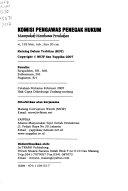Pendidikan Anak Usia Dini
Pendidikan anak usia dini merupakan tahap pendidikan yang fundamental. Ada 2 hal penting yang dialami anak usia dini, pertama adalah usia golden age dimana perkembangan seluruh aspek berkembang secara pesat, kedua, anak usia dini merupakan masa kritis, dimana seluruh aspek perkembangan pada usia ini menentukan perkembangan berikutnya. untuk mengetahui sejauh mana perkembangan yang telah dicapai oleh anak didik salah satunya yaitu dengan melakukan assesmen atau penilaian. Kegiatan penilaian merupakan usaha mengumpulkan dan menafsirkan berbagai informasi secara sistematis, berkala, berkelanjutan, dan menyeluruh tentang proses dan hasil dari pertumbuhan serta perkembangan yang telah dicapai oleh anak didik. Adapun tujuan pelaksanaan assesmen yaitu untuk (1) merencanakan pembelajaran individual dan kelompok agar dapat berkomunikasi dengan orang tua. (2) Mengidentifikasi anak yang memerlukan bantuan atau layanan khusus. (3) Mengevaluasi apakah tujuan pendidikan sudah tercapai atau belum. Oleh karena itu kegiatan assesmen anak usia dini tidak terlepas dari 3 hal ini. Untuk lebih mampu memberikan gambaran yang jelas mengenai assesmen pada anak usia dini, dalam buku ini akan dipaparkan berbagai kajian ilmiah tentang konsep dasar anak usia dini beserta aspek-aspek perkembangannya. Buku ini juga dilengkapi dengan teknik penilaian assesmen yang efektif dan tepat untuk diterapkan dalam pendidikan anak udia dini. Dalam buku ini terdiri dari 10 bab yang membahas tentang Assesmen autentik anak usia dini, Assesmen observasi dan portofolio anak usia dini, Assesmen unjuk kerja dan catatan anekdot anak usia dini, Assesmen percakapan pada anak usia dini, Assesmen Pembelajaran moral agama anak usia dini, Assesmen perkembangan kognitif pada anak usia dini, Assesmen perkembangan bahasa pada anak usia dini, Assesmen perkembangan sosio emosional anak usia dini, Assesmen perkembangan fisik motorik anak usia dini, Assesmen perkembangan seni pada anak usia dini.
-
ISBN 13 : 6025790302
-
ISBN 10 : 9786025790300
-
Judul : Assesmen Pembelajaran PAUD
-
Sub Judul : Pendidikan Anak Usia Dini
-
Pengarang :
Mhd. Habibu Rahman,
Nia Kurniasari,
Rita Kencana,
Wahyu Purwasih,
Eca Gesang Mentari,
Muhammad Azzam Muttaqin,
Mutia Rahayu,
Yuning Eka Rahma Wati,
Dina Khairiah,
Aulia Rahma,
Nurhidayati,
Puti Lestari,
Nia Kurniasari,
Rita Kencana,
Wahyu Purwasih,
Eca Gesang Mentari,
Muhammad Azzam Muttaqin,
Mutia Rahayu,
Yuning Eka Rahma Wati,
Dina Khairiah,
Aulia Rahma,
Nurhidayati,
Puti Lestari,
Nia Kurniasari,
Rita Kencana,
Wahyu Purwasih,
Eca Gesang Mentari,
Muhammad Azzam Muttaqin,
Mutia Rahayu,
Yuning Eka Rahma Wati,
Dina Khairiah,
Aulia Rahma,
Nurhidayati,
Puti Lestari,
-
Kategori : Young Adult Fiction
-
Penerbit : Hijaz Pustaka Mandiri
-
Bahasa : id
-
Tahun : 2020
-
Halaman : 200
-
Google Book : https://play.google.com/store/books/details?id=N03uDwAAQBAJ&source=gbs_api
-
Ketersediaan :
Pendidikan anak usia dini merupakan tahap pendidikan yang fundamental.










